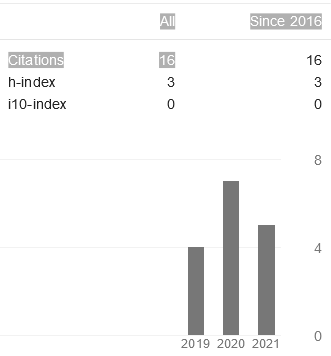The Relationship between Watching Mukbang Video with Dietary Behavior and Nutrition Status in Teens
Abstract
The trend of the mukbang has a distinct attraction for those who watch it and thus encourage one to eat. It has a positive and negative impact on dietary behavior and nutritional status, including teens those of more frequently watching mukbang videos. This study is to learn the relationship between watching video mukbang and dietary behavior and nutrition status in teens. The method done in this study is the literature review of critical assessments previously published. Articles from the two databases of Pubmed and Science Direct. The ten articles were analyzed and synthesized based on screening, selection, and selection of articles. Studies show that watching habits can encourage unhealthy eating practices and potentially addictive use of technology that can result in teens gaining weight commonly known as obesity. However, this habit also has a positive impact related to increasing the appetite of teenagers. Based on the results of the literature, it can be concluded that there is a relationship between the habit of watching mukbang video with dietary behavior and nutrition status in teens. That habit has both positive and negative impacts, but the negative impact is more
Copyright (c) 2023 Najha Ayis Zahirah, Septiana Safitri, Siti Nur Zahrina Madiha, Esti Novi Andyarini

This work is licensed under a Creative Commons Attribution-ShareAlike 4.0 International License.
Authors who publish with us agree to the following terms:
- Authors retain copyright and grant the publisher right of first publication with the work simultaneously licensed under a Creative Commons Attribution License that allows others to share the work with an acknowledgement of the work's authorship and initial publication in this proceeding.
- Authors are able to enter into separate, additional contractual arrangements for the non-exclusive distribution of the proceeding's published version of the work (e.g., post it to an institutional repository or publish it in a book), with an acknowledgement of its initial publication in this proceeding.
- Authors are permitted and encouraged to post their work online (e.g., in institutional repositories, pre-prints sites or on their website) prior to and during the submission process, as it can lead to productive exchanges, as well as earlier and greater dissemination of published work





_page-00011.jpg)
